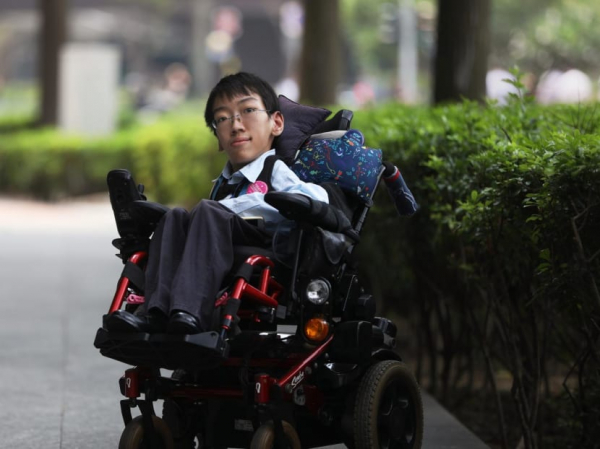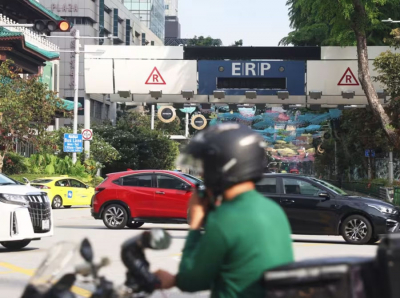Decisions on Hold: Contemplating Life-Altering Treatments for My Terminal Illness

Navigating the High Costs of Hope: The Quest for SMA Treatments in Singapore
In the recent discussions at the Committee of Supply debate, Nominated Member of Parliament Ong Hua Han has brought to light the pressing issue of accessibility to life-changing treatments for spinal muscular atrophy (SMA) patients in Singapore. With treatments like Evrysdi and Zolgensma showing promising results in improving quality of life, albeit with substantial financial burdens, the debate over financial aid for SMA patients has gained momentum.
Ong Hua Han's plea to the Ministry of Health (MOH) to extend financial support echoes the challenges faced by individuals like Sherry Toh, a Singaporean games journalist, who launched a crowdfunding campaign to afford Evrysdi—a treatment that demands a staggering S$375,000 for just one year's supply. Such initiatives shed light on the stark reality that access to these medications remains a privilege rather than a right for many SMA patients.
The contrast between Evrysdi, a daily oral medication, and Zolgensma, a one-time gene therapy, highlights the complexities of treatment options and financial considerations. While Evrysdi offers a more feasible option for some patients, Zolgensma's prohibitive cost—exceeding S$2 million—poses a formidable barrier, even with compassionate use provisions in place.
For individuals like myself, grappling with the realities of SMA, these treatments represent hope amidst the relentless progression of a terminal illness. SMA, characterized by progressive muscle weakness and neurodegeneration, robs individuals of basic functions and experiences, turning mundane tasks into monumental challenges.
While SMA remains a rare disease in Singapore, affecting a small but significant population, the urgency to address access to DMTs cannot be overstated. The transformative potential of these treatments is not merely theoretical; it is palpable in the stories of children who, thanks to early intervention, are defying the odds and embracing a future once deemed unattainable.
Yet, amidst the allure of these life-changing treatments, there exists a poignant dilemma. As someone intimately acquainted with the harsh realities of SMA, I am confronted with the decision to pursue these treatments or embrace the present moment, however limited it may seem. The allure of reclaiming lost experiences clashes with the uncertainty and sacrifices demanded by these treatments.
Ultimately, the pursuit of SMA treatments transcends mere medical intervention; it embodies the quest for dignity, autonomy, and the pursuit of a life that defies the confines of illness. As we navigate the complexities of affordability and accessibility, let us not lose sight of the individuals behind the statistics—their hopes, fears, and unwavering resilience in the face of adversity.
Ms. Toh's firsthand account underscores the tangible impact of disease-modifying treatments (DMTs) on the lives of SMA patients. Her experience, documented on her campaign page, vividly illustrates the transformative power of Evrysdi in enhancing essential functions like swallowing. The remarkable improvement—from 52 seconds to just 16 seconds—underscores the profound changes wrought by DMTs in the SMA landscape.
However, amidst the celebration of these medical advancements, a stark reality persists: the prohibitive cost of DMTs remains a formidable barrier for patients in Singapore. While in the United States, insurance coverage ensures accessible treatment options for those in need, the situation in Singapore paints a different picture. Without insurance support, patients are left to grapple with the daunting task of financing these life-changing medications independently.
The stark contrast between healthcare systems underscores the urgency of addressing the accessibility and affordability of DMTs in Singapore. While the benefits of these treatments are undeniable, their potential remains unrealized for many due to financial constraints. As discussions surrounding DMTs continue to unfold, the imperative to bridge this gap becomes increasingly urgent, ensuring that all SMA patients can access the treatments that promise to revolutionize their lives.
In conclusion, Ms. Toh's testimonial serves as a poignant reminder of the transformative power of disease-modifying treatments (DMTs) for spinal muscular atrophy (SMA) patients. Her firsthand experience underscores the tangible improvements in quality of life afforded by these medications, shedding light on the hope they offer to individuals facing the challenges of SMA.
However, the disparity in access to DMTs between countries like the United States and Singapore exposes a glaring issue: the prohibitive cost that impedes accessibility for many patients. As discussions on DMTs continue, it is imperative for stakeholders to address this pressing issue, ensuring that all SMA patients in Singapore can benefit from these life-changing treatments.
By fostering collaboration between policymakers, healthcare providers, pharmaceutical companies, and patient advocacy groups, we can work towards a future where access to DMTs is not determined by financial means. Together, we can forge a path towards equitable healthcare access, empowering SMA patients to embrace a future filled with hope, dignity, and possibility.


